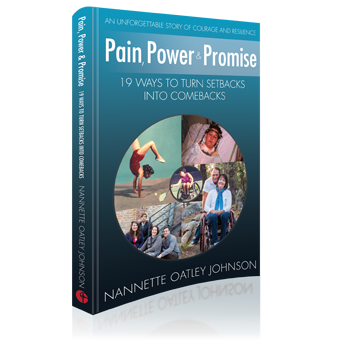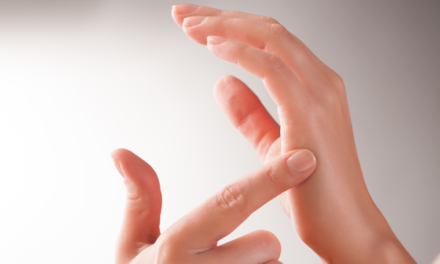Know you perchance
How that poor formless wretch,
The Oyster, gems her shallow moonlit chalice?
Where the shell irks her, or the sea sand frets,
She sheds this lovely luster on her grief.
Sir Edward Arnold
Aahh…The irritant. It’s unbid, unwelcome, uninvited.
Gets under our skin. Rubs us, bruises us, angers us. Irritants can be caused by painful and conflicted relationships, loss of control, fear, betrayal, a physical, mental or spiritual challenge; or any number of other things.
Unlike nature, where the pearl will form regardless; what we humans do with our irritants, how we respond to them, and how long we let them torture us, is up to us. We can take our injured lives and form in us an exemplary character and thus shed a “lovely luster” on our grief; or we can let the irritants of life completely overwhelm us and drop out, drug out, become bitter and unforgiving people.
Or there’s a third way: we can just throw up our hands and thank God for all the people in our lives who have irritated the hell out of us and made us the rare beauties we are today.
Seriously when you get to be of a seasoned age we all understand that life is suffering; this is a tenet of EVERY major world religion. The world is broken; and according to the Judeo-Christian worldview, it’s not only broken; it’s under a curse. The trees, the animals, the plants, the humans, the garden. Everything that was perfect went to poop. And here we are.
When psychiatrist, Dr. Viktor Frankl, was imprisoned at Auschwitz and various other death camps during the holocaust, he questioned what kept certain people alive and why did certain people die.
He surmised over his years of confinement that the most basic motivation in life is the will to meaning. Later he would write extensively about his findings in his classic book: Man’s Search For Meaning and his works would become a mainstream psychological theory, which I studied in grad school, called Existential Therapy.
Out of Frankl’s horrendous experience, he distilled that one’s life is discovered in 3 different ways:
- by creating a work or doing a deed;
- by experiencing something or encountering someone; and
- by the attitude we take toward unavoidable suffering.
I was just 22 when my life instantly and irreversibly changed. A camp counselor at a winter camp for jr. high and high school kids, I positioned myself next to my boyfriend on a big, tractor tire-size inflated inner tube. We lay on our stomachs, pushed off with our feet, and headed down the hill. After following the same path as the kids before us, we then veered to the right. With two of us on the tube, and the momentum increasing, it was a matter of seconds before we found ourselves airborne, soaring over the edge of a giant boulder.
Flying through the air on our stomachs, our arms wrapped tightly around the tube and each other-we hit the hard-packed snow with a jolt. The trampoline effect catapulted me back into the air. Somersaulting, I tucked my head and hit the hard-packed snow again, crushing several vertebrae on impact.
Within seconds, like the rising mercury in a thermometer, I felt the paralysis begin in my feet—then creep up my legs, my waist, and my chest where it sat on me like an elephant suffocating me. Like the bird I had seen slam into our sliding glass door and fall lifeless to the ground when I was a child, I too, lay wounded and motionless with a broken neck.
And like Dr. Frankl, though no comparison to the horridness, I entered my own confinement; a life imprisoned by paralysis. What I realized years later when I read his book was that the lifeline that pulled me up and out of my own crucible was that my life too was re-discovered in the ways he postulated.
- I had encountered someone (I subsequently married the boyfriend on the inner tube with me just a little over a year after my injury); and
- An attitudinal shift occurred when I decided that whatever God had for me standing up I would just have to do sitting down.
As I dug out of the rubble of my own devastation, I discovered a foundational Resilient Response to life’s hardships: We have the Power to Choose, beginning with our attitudes. This is the Zoe life. Our ATTITUDE toward unavoidable suffering can be the difference between life and death. In the words of Charles R. Swindoll, “I am convinced that life is 10% what happens to me and 90% how I react to it.”

Pain Power & Promise
19 Ways to Turn Setbacks Into Comebacks
Not just another tale of tragedy to triumph! Pain, Power & Promise is Nannette Oatley Johnson’s compelling life story. It is a candid and unforgettable journey through trauma, marriage, infidelity, divorce, single parenthood, graduate school, professional sports, and miraculous new love. You’ll find yourself cheering as she weathers every setback, reinvents herself, and finds the tenacity to smack adversity around and force it to divulge its hidden pearls. And you’ll share her passion to raise the level of compassionate consciousness toward the physically challenged. Bold, warm, and sassy, Nannette’s story offers a self-help survival kit with a universal message of strength and hope.
Discover how to:
- Ratchet up your resilience
- Transform natural anxiety into sacred anxiety
- Command and control your state of mind
- Jump-start your initiative
- Create a phenomenal family
- Join the Strengths Revolution!


